When it comes to choosing the right windows for your place, there are numerous options available in the market. One such option that has gained popularity in recent years is fiberglass windows. Combining durability, energy efficiency, and aesthetic appeal, fiberglass windows have become a favored choice for homeowners. However, like any other material, fiberglass windows come with their own set of advantages and disadvantages. In this blog, we will explore the pros and cons of fiberglass windows to help you make an informed decision.
Post your Requirement
Enquire Now for Sliding Windows
Applications of Fiberglass Windows
Fiberglass windows are a type of window made from a composite material that combines glass fibers with a polymer resin. They have become increasingly popular in recent years due to their numerous advantages over traditional window materials like wood, aluminum, and vinyl.
Here are some common applications of fiberglass windows:
- Residential Buildings: Fiberglass windows are widely used in residential homes. They offer excellent insulation, durability, and weather resistance, making them suitable for various climates. Homeowners often appreciate the low maintenance requirements and the ability to customize the windows to match their architectural style.
- Commercial Buildings: Fiberglass windows are also used in commercial buildings, including office spaces, retail stores, and public facilities. Their energy efficiency and long lifespan make them an attractive choice for businesses looking to reduce operational costs and enhance sustainability.
- Historic Restoration: Fiberglass windows are often used in the restoration of historic buildings. They can replicate the look of traditional wood windows while providing modern performance benefits. This allows historical structures to maintain their original appearance while upgrading to more efficient and durable materials.
- Coastal Areas: Fiberglass windows are an ideal choice for buildings located in coastal areas. They are highly resistant to saltwater corrosion, making them suitable for withstanding harsh coastal environments, where traditional metal-framed windows might deteriorate over time.
- Extreme Climates: Fiberglass windows perform well in extreme climates, they have low thermal expansion rates, which prevent warping and ensure proper functioning even in temperature fluctuations.
- Noise Reduction: Fiberglass windows offer superior noise reduction capabilities. This feature is particularly valuable in urban environments or areas with high noise pollution, providing occupants with a more peaceful and comfortable indoor environment.
- Green Buildings: As sustainable construction practices gain importance, fiberglass windows are often incorporated into green building designs. Their energy-efficient properties help reduce heating and cooling costs, contributing to the overall energy efficiency of the structure.
- High-Performance Buildings: Fiberglass windows are commonly used in high-performance building projects, such as those seeking LEED (Leadership in Energy and Environmental Design) certification. Their energy-saving qualities align with the goals of sustainable and environmentally conscious construction.
Pros of Fiberglass Windows:
- Durability: Fiberglass windows are known for their exceptional durability. The material is highly resistant to warping, cracking, and fading, making it ideal for areas with extreme weather conditions. Unlike wood, which can rot and require regular maintenance, fiberglass windows have a longer lifespan and often come with warranties of 20 years or more.
- Energy Efficiency: Fiberglass windows have excellent insulation properties, making them a more energy-efficient option compared to some other materials like aluminum. They help maintain a consistent indoor temperature, reducing the need for heating and cooling, and ultimately leading to energy savings and lower utility bills.
- Low Maintenance: As mentioned earlier, fiberglass windows require minimal maintenance. They do not need to be repainted or stained periodically, unlike wood windows. Regular cleaning with mild soap and water is sufficient to keep them looking new for many years.
- Design Versatility: Fiberglass windows are available in a wide range of styles, colors, and finishes, making it easier to match the aesthetic of your home. They can mimic the appearance of traditional wood windows or have a contemporary look, providing homeowners with greater design flexibility.
- Environmentally Friendly: Fiberglass is considered an eco-friendly material due to its low thermal conductivity, which helps conserve energy in homes. Additionally, many manufacturers use recycled materials in the production of fiberglass windows, further reducing their environmental impact.
Cons of Fiberglass Windows:
- Cost: One of the primary drawbacks of fiberglass windows is their initial cost. They can be more expensive than vinyl or some wood windows. However, it is essential to consider the long-term benefits and durability of fiberglass, which can outweigh the initial investment.
- Installation Complexity: Fiberglass windows are relatively lightweight but can be more challenging to install due to their specific requirements. Hiring experienced professionals for installation is crucial to ensure proper fitting and maximize their energy efficiency potential.
- Limited Availability: While the popularity of fiberglass windows is increasing, they might not be as widely available as vinyl or aluminum windows. This limited availability can lead to higher costs in certain regions or difficulty finding the exact style or design you desire.
- Potential Color Fading: Although fiberglass windows are less prone to fading compared to vinyl, they are not entirely immune to it. Over time, prolonged exposure to harsh sunlight can cause some color fading or chalking.
Conclusion
Fiberglass windows offer a host of advantages that make them a compelling choice for homeowners seeking a long-lasting, energy-efficient, and low-maintenance windows solution. Their durability, energy efficiency, and design versatility make them stand out among other window materials. However, their higher initial cost and limited availability are some factors that need to be considered when making a decision.
Ultimately, the choice of windows depends on your budget, location, and personal preferences. Before making a decision, consult with window professionals, compare different options, and weigh the pros and cons carefully to select the best fit for your home and lifestyle.

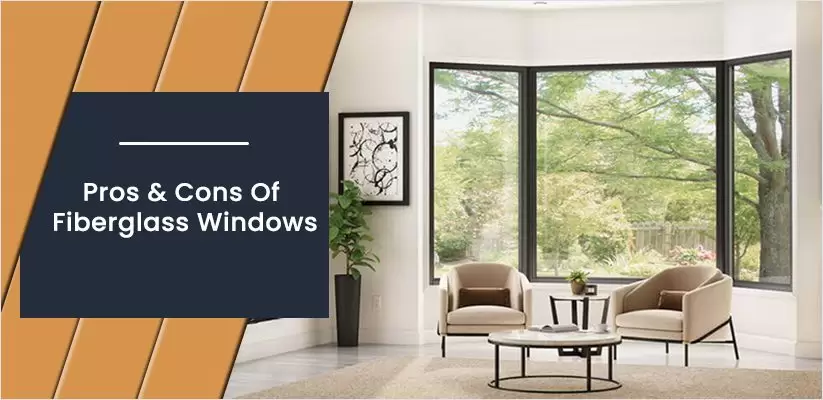
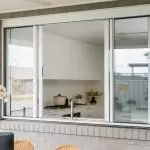
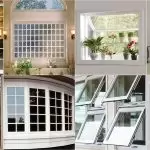
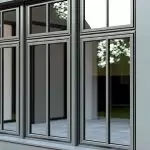
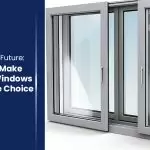

















Post A Comment